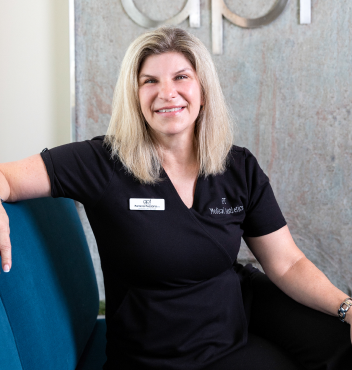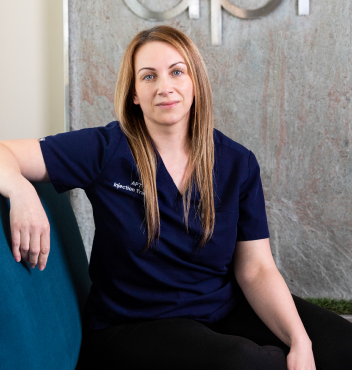blog
Patient Safety in Aesthetic Procedures: What You Need to Know

Oct 17 2024
Reading Time: 4 Minutes
Author:
As cosmetic treatments grow in popularity, patient safety in aesthetic procedures has become increasingly critical. With more clinics offering a wider range of treatments, the risk of complications can also rise. Aesthetic professionals must be prepared to manage these risks effectively to uphold high standards of care and ensure positive patient outcomes. In this blog, we’ll explore common complications that can arise from aesthetic procedures, strategies to minimize and address them, and the importance of thorough training and preparation in safeguarding patient safety.
Understanding Complications in Aesthetic Procedures
Cosmetic procedures, particularly those involving injectables such as botulinum toxins and dermal fillers, generally have a high safety profile. However, like all medical interventions, they are not without risks. Complications can occur beyond the usual swelling, redness, and bruising that often follow these treatments. Practitioners need to be skilled in identifying and managing a potential issues to ensure cosmetic procedure safety and optimal patient care in aesthetic medicine.
1. Allergic Reactions
Allergic reactions are rare but can occur if a patient has hypersensitivity to any components of injectables or topical skincare products. Symptoms may range from mild itching and rash to severe anaphylaxis, which requires immediate medical intervention. Proper patient screening and documenting detailed medical history are essential to identify potential allergies before proceeding with cosmetic treatments.
2. Infections
Infections are a risk in any procedure that involves puncturing the skin. While most practitioners adhere to strict hygiene protocols, occasional infections can occur due to contaminated equipment or improper handling. Symptoms of infection include increased redness, swelling, and pain at the injection site, as well as fever in severe cases. Employing rigorous aseptic techniques and educating patients on post-procedure care can significantly reduce the risk of infections.
3. Vascular Occlusions
Vascular occlusions are a serious complication that can arise from injectable treatments. This occurs when the injected material accidentally enters a blood vessel, blocking blood flow. This can lead to serious complications, such as tissue necrosis or even blindness, therefore immediate recognition and management of vascular occlusions are crucial. Techniques for prevention include careful anatomical knowledge, using appropriate injection techniques, and having hyaluronidase (an enzyme that can dissolve hyaluronic acid) readily available if needed.
4. Unintended Aesthetic Outcomes
Unintended aesthetic outcomes, such as asymmetry or over-correction, can occur due to inaccurate injection techniques or a misunderstanding of your patient’s expectations. Effective communication with patients and precise technique are essential to achieving desired results. Pre-treatment consultations and setting realistic expectations can help minimize the likelihood of such complications.
5. Laser Treatment Complications
For non-injectable procedures like laser treatments, complications can include burns, hyperpigmentation, and scarring. These issues often result from inappropriate settings, improper technique, or failure to follow post-procedure care instructions. Thorough staff training and adherence to safety protocols are key to minimizing these risks. Additionally, patients should be well-educated and prepared to follow both pre- and post-treatment instructions.
To ensure you’re equipped to handle laser-related complications, APT Injection Training offers an Online Laser Module Course that covers laser safety protocols, proper usage, and management of common laser complications, helping you provide safer treatments to your patients.
Addressing Complications: The Professional Approach to Patient Safety
When complications occur, it is vital for aesthetic professionals to remain calm and approach the situation methodically. Acting quickly and decisively can often resolve issues and prevent them from escalating. Here are some key strategies for managing complications effectively:
Immediate Response:
Recognizing the signs of complications early and taking swift action is critical. For example, if an allergic reaction occurs, administering antihistamines or epinephrine may be necessary depending on the severity.
Consultation with a Medical Director:
Having a medical director or an experienced mentor to consult with can provide additional support and guidance in managing complex cases. Their expertise can be invaluable in decision-making and ensuring adherence to best practices.
Documentation and Follow-Up:
Thorough documentation of any complications and follow-up with the patient are essential for monitoring recovery and addressing any ongoing issues. Detailed records also help in improving protocols and preventing future occurrences.
Patient Communication:
Clear communication with patients about what to expect and how to recognize potential complications is essential. Providing detailed post-procedure care instructions can help patients manage minor issues and seek help if necessary.
Minimizing Complications: Safe Cosmetic Injection Practices

Preventing complications should always be your first line of defense. By embracing high-level training and implementing effective and safe cosmetic injection practices, you can drastically lower the chances of complications arising:
Comprehensive Training:
Quality training programs play a crucial role in equipping practitioners with the skills and knowledge needed to perform procedures safely. Courses that cover complications and their management, such as those offered by APT Injection Training, are instrumental in preparing practitioners for real-world challenges.
Knowledge of Anatomy:
A thorough understanding of facial anatomy is vital for avoiding complications like vascular occlusions. Detailed anatomical knowledge enables practitioners to perform procedures with precision and minimize risks.
Experience and Practice:
Hands-on experience helps refine techniques and improve outcomes. Aesthetic practitioners should seek opportunities for additional practice and continuing education to stay current with the latest techniques and safety protocols.
Patient Consent and Education:
Ensuring that patients are well-informed about potential risks and obtaining their informed consent is a fundamental aspect of ethical practice. Educating patients about what to expect before, during, and after their procedures helps in setting realistic expectations and managing any issues that arise.
Ongoing Professional Development:
The field of aesthetic medicine is constantly evolving. Staying updated with the latest advancements, techniques, and safety practices through ongoing professional development is essential for maintaining high standards of patient care.
Prioritizing Patient Safety in Aesthetic Procedures
Ensuring patient safety in aesthetic procedures is a critical responsibility for every practitioner. By understanding potential complications, adopting best practices, and seeking comprehensive training, you can provide high-quality care while minimizing risks for your clients. Effective training programs, such as those offered by APT Injection Training, play a crucial role in preparing practitioners to handle complications confidently and competently. As you advance in the field of medical aesthetics, remember that prioritizing patient safety and ongoing education are key to delivering exceptional care and achieving successful outcomes.
Tips to be a
Successful Injector!
Free E-Book download
 Student Log in
Student Log in
 1267 Cornwall Rd, Unit 300, Oakville, Ontario L6J 7T5
1267 Cornwall Rd, Unit 300, Oakville, Ontario L6J 7T5

 (289) 271-5718
(289) 271-5718




































